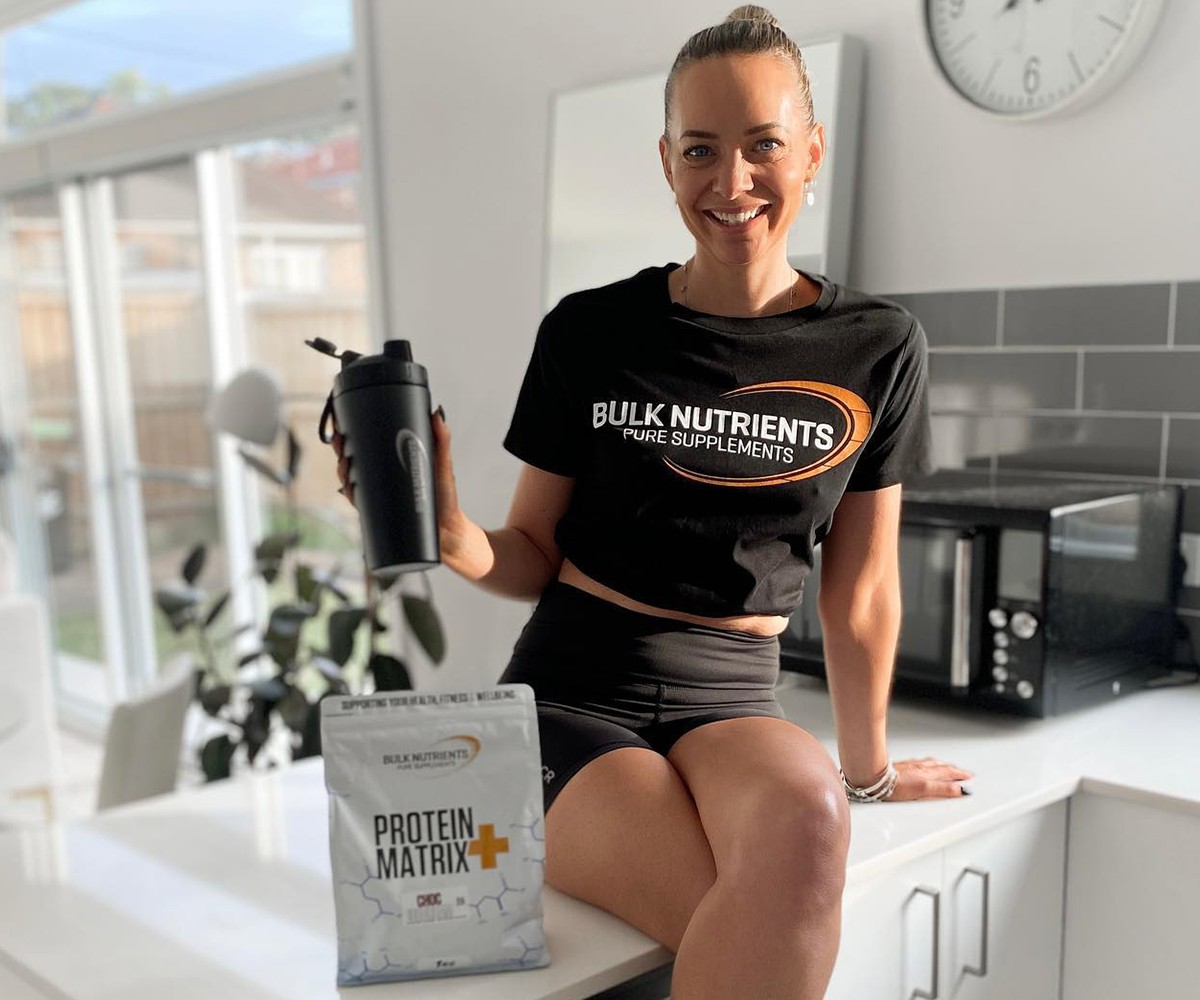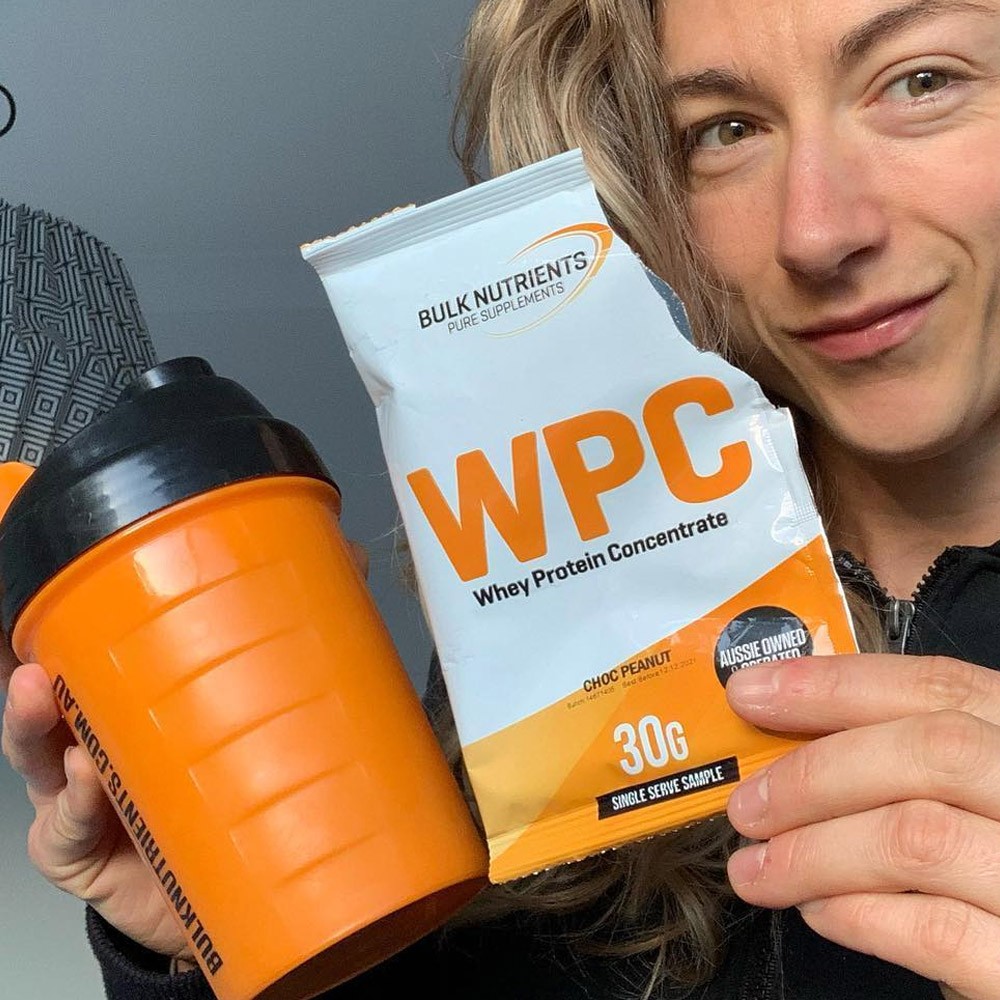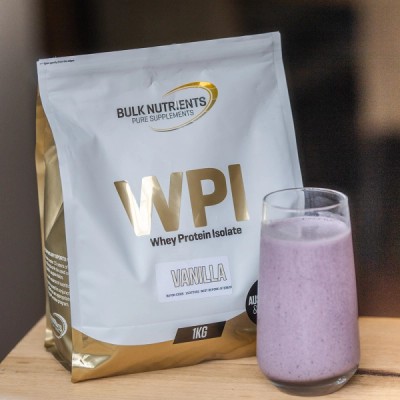Does Protein Timing Matter for Muscle Growth?

The thirty-minute anabolic window after training
One of the popular notions is that there's a 30-minute anabolic window after training, whereby you must consume adequate protein to ensure maximal muscle gains.
But it's just not true.
This is one way that "protein timing" is thought to be important.
But in this context, it isn't.
The truth is, that your muscles want protein at this point and protein synthesis peaks after training, but the anabolic window is more like four to six hours.
So protein timing matters in the context of needing it four to six hours after training, but that's very different from needing it within 30 minutes after!
Most people would easily get their hands on a protein-rich meal within four to six hours of training, so this isn't much of an issue at all.
Training in a fasted state for muscle growth
The other context in which protein timing matters is ensuring you don't train in a fasted state.
So a protein shake ahead of a gym workout is critical for maximal muscle growth, because muscle protein breakdown increases during fasted exercise, and persists even after training!

This can spell disaster for your muscle gains. That's why protein shakes are recommended ahead of training so we can switch from a catabolic (muscle wasting state) to an anabolic (muscle growth state). And doing this, as scientists put it:
"Over a chronic period, this tactic could conceivably lead cumulatively to an increased rate of gains in muscle mass."
Distribution of protein daily for more muscle growth
The other component of protein timing is making sure you get it at every meal consistently (every 5-6 hours might be ideal according to research).
What research shows isn't ideal, is consuming the bulk of your protein towards the end of the day.
The aforementioned study examined the following:
Even protein distribution: Breakfast: ~31 grams Lunch: ~30 grams Dinner: ~33 grams
Skewed protein distribution: Breakfast: ~11 grams Lunch: ~16 grams Dinner: ~63 grams
The authors concluded:
"The consumption of a moderate amount of protein at each meal stimulated 24-h muscle protein synthesis more effectively than skewing protein intake toward the evening meal."

How much protein do we need for muscle growth?
Research shows we need around 1.6 grams of protein per kilogram of body weight per day.
So, if Bulk Nutrients customer Michael weighs 80 kilograms, he'd need 128 grams of protein per day.
Given the research findings, we'd recommend Michael consume it in the following way:
- Breakfast: 32 grams of protein
- Lunch: 32 grams of protein
- Dinner: 32 grams of protein
- Before bed: 32 grams of protein
- Total: 128 grams
Getting protein easier with protein powder
The beauty of a whey protein powder supplement is that you can achieve 30-40 grams of protein with ease, without cooking or inconvenient measures.
And we've got you covered with our whey protein options!

The bottom line is that protein timing doesn't matter in the context of 30 minutes after training, or during the "anabolic window" as it is often referred to. The "anabolic window" is more like four to six hours, and we should consume protein after this time has elapsed.
Moreover, training fasted is not advised, and protein timing in the sense that we consume it before training is important.
We should also not backload the bulk of our protein at the end of the day but spread it evenly throughout. It's critical we get about 1.6 grams of protein per kilogram of body weight per day, and we can make it easier for ourselves by consuming it in the convenient form of whey protein powder.

Dayne Hudson
Like many, Dayne was once desperate to lose weight and get into shape. But everyone he asked, everything he read, lead to the same place... nowhere.
His journey started there - researching science journals and completing a Sports Nutrition Specialist qualification so he could make weight loss easier.
References:
- Aragon AA, Schoenfeld BJ. Nutrient timing revisited: is there a post-exercise anabolic window?. J Int Soc Sports Nutr. 2013;10(1):5. Published 2013 Jan 29. doi:10.1186/1550-2783-10-5
- Kumar V, Atherton P, Smith K, Rennie MJ. Human muscle protein synthesis and breakdown during and after exercise. J Appl Physiol. 2009;106(6):2026–39. doi: 10.1152/japplphysiol.91481.2008.
- Mamerow MM, Mettler JA, English KL, Casperson SL, Arentson-Lantz E, Sheffield-Moore M, Layman DK, Paddon-Jones D. Dietary protein distribution positively influences 24-h muscle protein synthesis in healthy adults. J Nutr. 2014 Jun;144(6):876-80. doi: 10.3945/jn.113.185280. Epub 2014 Jan 29. PMID: 24477298; PMCID: PMC4018950.
- Wu G. Dietary protein intake and human health. Food Funct. 2016 Mar;7(3):1251-65. doi: 10.1039/c5fo01530h. PMID: 26797090.






























